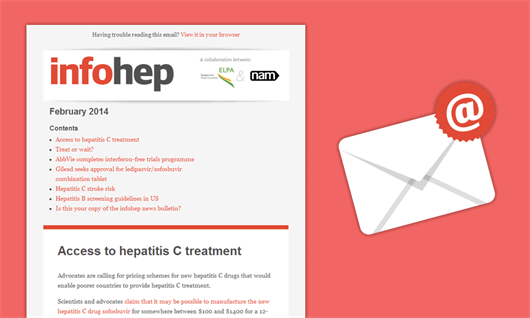A systematic review of hepatitis C direct-acting antiviral (DAA) studies published by the Cochrane Collaboration has been strongly criticised by doctors and advocates for its conclusion that there is no evidence that the expensive drugs prolong life or reduce liver-related disease in people who achieve a sustained virologic response to treatment – a cure, in current understanding.
Systematic reviews have become highly influential in health policy-making and the development of clinical guidelines. The reviewers carry out a systematic search for all published and unpublished scientific studies relevant to a scientific question, rate the quality of those studies and calculate the overall effect of an intervention or treatment. In particular, systematic reviews seek to minimise bias caused by poor study design, inadequate follow-up or incomplete publication of results. The Cochrane Collaboration has published numerous systematic reviews in all areas of medicine and its reviews are highly regarded.
The Cochrane Collaboration’s review of the impact of DAAs on mortality, morbidity and serious adverse events, published this month, identified 138 randomised trials. Only eleven studies with follow-up on 2996 people reported on mortality and morbidity; meta-analysis of these studies found no significant difference in outcomes in people who received DAAs or placebo. A grand total of 16 deaths were reported in these studies.
The Cochrane reviewers acknowledge a major limitation of their review: most trials had short follow-up periods, so “our results can neither confirm nor reject that DAAs have clinical long-term effects”. In fact, the average follow-up period was just 34 weeks, far too short to detect any effect on mortality except in people with decompensated cirrhosis and end-stage liver disease.
In a letter to The Guardian, Professor Graham Foster of Queen Mary University of London and senior colleagues from the United Kingdom said: “The trials were neither designed, nor powered, to assess mortality, so it is not at all surprising that the Cochrane review was unable to identify any impact on mortality.“
In contrast, a systematic review of 31 studies of the effect of pegylated interferon and ribavirin on the survival of people after being cured of hepatitis C was able to draw on studies that followed people for a median of 5.4 years, allowing researchers from Imperial College, London, to conclude that a sustained virological response to treatment reduced the risk of death by 50-80% over five years.
The authors of the review also described the well-accepted relationship between sustained virologic response and long-term outcomes of liver disease as a “non-validated surrogate outcome”.
“I'm not sure how the Cochrane Collaboration could claim that curing Hepatitis C with new direct-acting antiviral drugs does not improve survival,” commented Dr Andrew Hill, one of the authors of the Imperial College review.
“They could claim that being cured of hepatitis C from the new drugs is somehow different in terms of survival, compared to being cured on the old interferon-based treatments. But this would be hard to understand – for most experts, curing Hepatitis C should have the same clinical consequences, no matter what treatment is used to achieve this.”
The Australian professional groups of liver experts have issued a statement noting that “Clearing the hepatitis C virus has been shown in natural history and prior treatment studies to substantially reduce the risk of liver cancer and liver failure, reducing mortality from cirrhosis and liver cancer.”
In the United States, the American Association for the Study of Liver Diseases (AASLD) and the Infectious Diseases Society of America (IDSA) reiterated evidence from 14 studies supporting the link between hepatitis C cure and subsequent reductions in illness and death, and urged the Cochrane review authors “to retract or to revise their conclusions.”
“As a patient-led and patient-driven organisation, we have seen, heard and experienced the real evidence of being treated with DAAs. The true story is one of remarkable, if surprising, success over just a decade, transforming an unpleasant and sometimes fatal disease into one that is readily cured,” said Charles Gore, President of the World Hepatitis Alliance (WHA). “What is absolutely imperative is that this Review should not be used as another excuse not to treat when currently only 1.5% of people living with hepatitis C are accessing treatment worldwide.”




Connect with infohep on Facebook: Keep up to date with all the latest news and developments.
Follow infohep on Twitter for links to news stories and updates from infohep.org. Follow us at www.twitter.com/infohep.
Follow all the infohep news by subscribing to our RSS feeds.